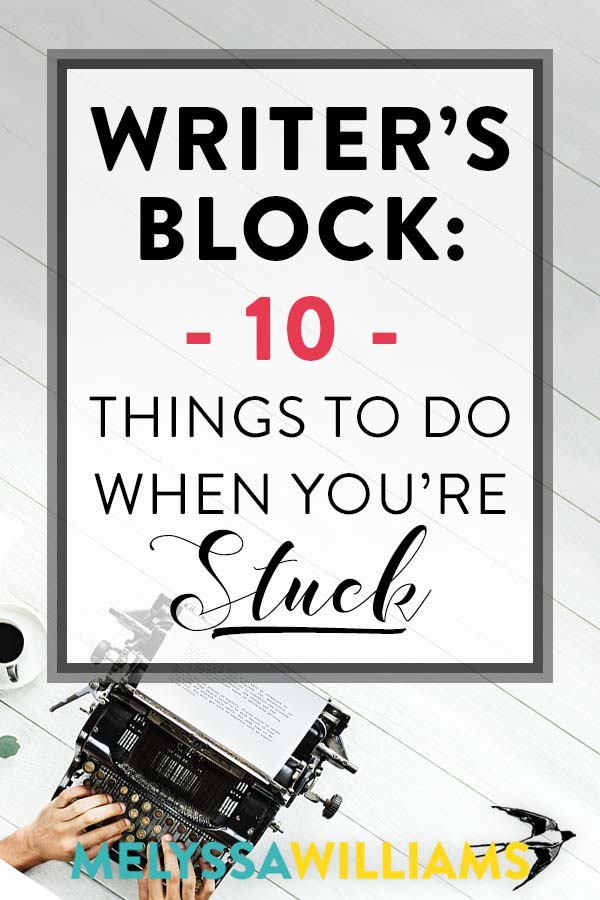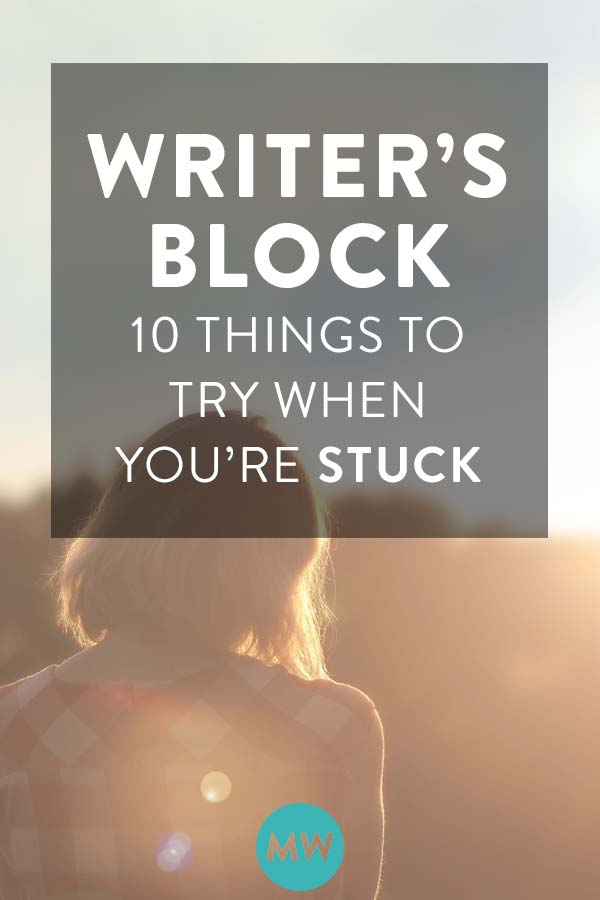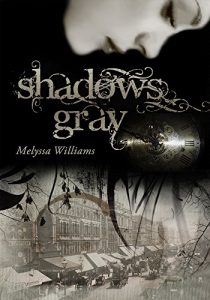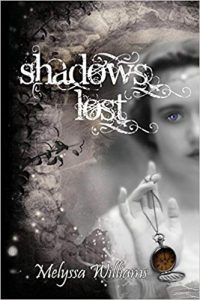We’ve all been there: things have been going along swimmingly for a while. You’re getting up earlier to write, you’re finding time in between the busyness of life, you’ve made considerable headway, you can see the faint light at the end of the tunnel of your manuscript, and then wham! It hits.
Writer’s block.
Writer’s Block
First of all, is it a myth? Isn’t it just the socially acceptable form of taking a break, not pushing through, and giving yourself permission to slow down? Or is it more insidious? Something that can cause you to slip into – to quote Anne Shirley – the Depths of Despair?
Some authors believe it’s a force to be reckoned with, others would say PFFT. Or PSHAW. It doesn’t matter what they think though, it matters what you decide, and then what to do with your decision.
You can’t be blocked if you keep on writing words. Any words. People who get ‘blocked’ make the mistake of thinking they have to only write good words.
~ Martha Grimes
Does it come easier at some points than it does at others (your muse, so to speak)? That’s a given, and everyone can agree on that. There are just days when the words simply flow, and writing doesn’t feel like work at all. Then there are the other days. Oh, those other days.
There’s nothing to writing. All you do is sit at a typewriter … and bleed.
~ Ernest Hemingway
Whether you subscribe to the buckle down approach, or the wallow in it for a bit approach, at some point you’ll experience it, and then you have to dig your way back out.
10 Things to Try When You’re Stuck
1 | Rekindle Your love for your characters
Rediscover a love for your characters, big and small, hero and villain. Make them each a playlist and listen to it. Redesign your outline (or if you don’t have one, write one).
Answer ice breaker type questions for them. What is their favorite food? Their worst memory? Their first kiss? What do they do when they can’t fall asleep at night, what is their middle name, do they have any phobias? What’s the worst thing that could happen to them? What’s the best?
Can your villain play sports? Is your heroine addicted to pain killers? Well, maybe they should be. Finding any interesting quirk you didn’t know they had can be motivating to a stuck author and can inspire a whole scene or chapter or even the entire book.
2 | Change your surroundings
If you write in the same spot and at the same time every day, switch it up. Stay up later or get up earlier, or write during lunch. Go to a coffee shop with wifi (or better yet, no wifi). Try switching to old-fashioned paper and pencil (if nothing else, you’ll be happy to get back to your PC).
If looking at your same walls is making you crazy, go look at someone else’s walls. Write in the dark, write at the mall, write in the woods, write in a hammock, write outside, write in the car, write at your friend’s house, write in a courtyard.
New surroundings give you a chance to people watch which is excellent for new characters and situations, and the boost you feel from surprising yourself might put you on a new path in your novel.
3 | Get beta-readers
Even if it’s a little earlier in the process than you thought you’d want them, beta-readers can help you bust through writer’s block. Professional or just a pal, having someone read your words can really motivate (and simultaneously terrify) you.
If they love it, you’ll find a newfound energy, and if they have critiques for you, well, you were going to get them anyway and it’s best to have them early on so you can marinate in that concoction of hope and despair for best flavor later on.
Just be sure to ask someone whom you trust (obviously), and someone who reads quickly. If they take three months, or even one, to read your 20,000 words, you’ll be even further up the creek than you were when they started.
Not everyone reads quickly, not everyone is honest, a lot of people will flake out on you (this has happened to me so many times it’s not even funny, so I recommend not putting all your eggs in one beta-reader basket) and not everyone is good for this job.
Choose wisely.
4 | Write out-of-order
Type A’s – like me – find this slightly horrifying, and a bit like cheating, but writing your climax first then working backwards has its advantages.
One, you’re still writing, which is really what being a writer is all about, and two, exciting endings and wrap-ups are so rewarding! Like a pint of ice cream after a long day, sometimes you just have to do what’s fun and go back to real life tomorrow.
Plus, writing out-of-order tricks your brain into thinking you’re done, even if there’s eleven chapters in the middle that need writing. Suddenly, those eleven chapters seem doable.
5 | Read books & watch films in your manuscript’s genre
Two different opposing views on this one, but we’ll get to the rebuttal further down this list.
Personally, I find reading and watching high quality books and films in say, Young Adult Suspense, to be helpful when writing my own Young Adult Suspense trilogy. I could discover what really worked for me, what really didn’t (which is arguably more important), find some common threads, and feel motivated again.
Sometimes I’ve gotten to an important scene in another author’s novel and it goes a direction I wish it didn’t and I’m disappointed. This motivates me, in a way, to rewrite that scene in my imagination and compare.
What if the nerdy teenage girl didn’t take off her glasses and suddenly became a hottie? What if she kept her curly hair, didn’t lose weight, still had bad fashion sense, and the football jock liked her anyway? Or maybe she burns down the school, drops out, and goes to hunt vampires.
Whatever your genre is, remember why you chose it and loved it in the first place. Go back there.
6 | Don’t Read books & watch films in your manuscript’s genre
Some authors feel it clouds their vision, makes them oddly competitive, or subconsciously causes them to plagiarize. If you feel let-down, anxious, and bad about your writing when reading other author’s words in the same genre, or you’re afraid you’re going to accidentally copy it too closely, read something else.
There’s inspiration to be had just about everywhere, and who says you can’t find it in a cookbook when you’re writing a thriller? (That escalated quickly, am I right?)
Besides, a good novel – a truly good novel- has a little bit of every genre in it. You might find what yours is missing.
7 | Use the reward system
Slightly more sophisticated than your child’s chore chart with stickers, but the same idea.
Set reasonable goals with doable rewards. From the small things, such as write every day from 9-10:30 even if I think it’s crap, and on the weekend I can go to a movie. Or push past this 12,000 word prison I’m in and I’ll take two days off next week. To the larger rewards: finish this – just finish it! – and I’ll take that trip I’ve been promising myself, or make my deadlines I set six months ago and I will treat myself to a spa day.
Even tiny, minuscule rewards can feel good and motivate us: write for one solid hour and you can catch up on Grey’s Anatomy or eat that chocolate bar. No writing? No Grey’s and no chocolate, baby! Just make sure you follow through on your own threats.
8 | Focus on something Other Than Writing
Put away the words for a little while and focus instead on the cover art, the blurb, your own bio, anything else that you are going to have to do anyway at some point in this process.
Getting excited over your cover is inspiring like nothing else! Plan a photoshoot with a photographer if you can, or direct your own book trailer if you have the capabilities.
If that’s too out of your price range, go smaller, like dedicating a whole Pinterest board to your book. While it can be a delightful time-suck, Pinterest can also be a life-saver to a stuck author!
9 | Get Together with other writers
Join author groups, start a webpage if you don’t have one already, meet up with other writers, talk about being stuck to others who know the feeling.
If you can’t find the right group, start one. Go to a book club, go to the library functions, attend a book signing, take a class.
10 | Just Keep Swimmin’
Lastly, don’t give up. Writer’s block is a phase, much like your toddler throwing tantrums in the craft store, or platform flip-flops.
It won’t last, you won’t remember much of it anyway, and the important thing – the only thing – is to push through and head towards the light.
PIN IT





